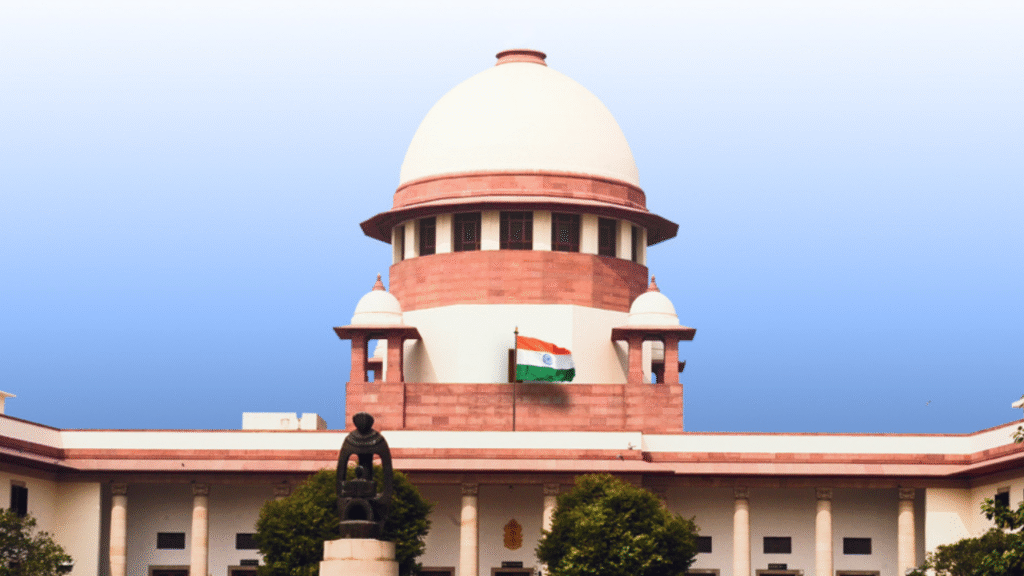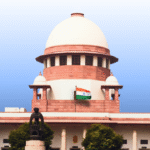CRIMINAL LAW – Quashing of First Information Report (FIR) and Magistrate’s Order – Sections 154, 156(3), 190, 300, 482 Code of Criminal Procedure, 1973 (CrPC) – Articles 226, 227 Constitution of India – Sections 34, 120-B, 406, 409, 420, 421, 422, 424, 467, 468, 471, 477, 477-A Indian Penal Code, 1860 (IPC) – Arbitration & Conciliation Act, 1996 – Securities and Exchange Board of India (SEBI) Guidelines.
ANURAG BHATNAGAR & ANR. v. STATE (NCT OF DELHI) & ANR.
(2025) 7 SCD 77 : 2025 INSC 895
SUPREME COURT OF INDIA
(PANKAJ MITHAL, J. & S.V.N. BHATTI, J.)
JULY 25, 2025
FACTS: M/s Sunair Hotels Limited (SHL) was allotted land for a hotel but lacked funds. VLS Finance Limited (VLS), a non-banking finance company, approached SHL to join the project as financial consultants, assuring a public issue of 10 lakh equity shares at a premium of Rs. 100/- per share and an investment of Rs. 7 crore as equity and Rs. 10 crore as an interest-bearing security deposit. An MoU was signed on March 11, 1995. SHL later discovered that issuing shares at a premium of Rs. 100/- was not legally possible due to SEBI guidelines requiring a three-year track record of consistent profitability, which SHL did not possess. SHL alleged that VLS, an expert in financial matters, deliberately concealed these guidelines to gain control.
SHL initiated arbitration proceedings, which concluded on July 18, 2015, with an award dismissing SHL’s claim and directing SHL to refund the Rs. 10 crore security deposit to VLS with interest. This award is currently under challenge before the Delhi High Court.
VLS subsequently filed multiple FIRs against SHL and its directors/office bearers (FIR No. 90/2000, 99/2002, 148/2002) between 2000 and 2002, alleging fraudulent conduct and siphoning off funds.
In retaliation, SHL filed a complaint on June 3, 2004, under Section 156(3) CrPC, leading to FIR No. 326/2004, alleging VLS failed to fulfill MoU obligations (deposited Rs. 8 crore instead of Rs. 10 crore, failed to bring public issue, played fraud). VLS sought to quash this FIR, and the High Court stayed the investigation, which became absolute.
On July 1, 2005, SHL filed another application under Section 156(3) CrPC, leading to FIR No. 380/2005, which alleged offenses under Sections 420, 120-B, and 34 IPC. Investigations for FIR No. 380/2005 were completed, and a chargesheet was filed. VLS and its officers moved the High Court to quash FIR No. 380/2005 and the Magistrate’s order dated July 1, 2005. The High Court dismissed their petitions, holding that the Magistrate’s order was a speaking order, the dispute was not solely civil, and investigations had been completed with chargesheets filed.
The present Special Leave Petitions challenge the High Court’s dismissal.
ISSUES FOR DETERMINATION BEFORE THE SUPREME COURT:
- Whether an application under Section 156(3) CrPC could have been filed without first approaching the police authorities under Section 154 CrPC.
- Whether the Metropolitan Magistrate’s order dated July 1, 2005, was passed without application of mind, despite stating that parties were “heard” and documents “perused”.
- Whether the High Court can deny quashing of an FIR or Magistrate’s order when investigations have been completed and chargesheets filed.
- Whether the nature of the dispute in the impugned FIR is purely civil, or if it involves criminality, especially given that both sides had previously lodged FIRs originating from the same MoU dated March 11, 1995.
- Whether the present FIR (No. 380/2005) amounts to a successive FIR based on the same allegations as an earlier FIR (No. 326/2004), and as such, cannot be investigated independently.
HOLDINGS:
- On prior approach to police (Point i):
- The Court reiterated that an informant should first approach the officer-in-charge of the police station under Section 154(1) CrPC. If refused, the remedy is to approach the Superintendent of Police under Section 154(3) CrPC. Only if these remedies are exhausted unsuccessfully can the informant approach the Magistrate under Section 156(3) CrPC.
- In this case, SHL directly approached the Magistrate.
- While the Magistrate “ought not to have ordinarily entertained” the application directly, doing so is considered a “mere procedural irregularity”.
- Since the Magistrate is otherwise empowered to pass such an order if a cognizable offence is disclosed, the order is not rendered illegal or without jurisdiction on this count. The order, though irregular, caused no prejudice.
- On application of mind by Magistrate (Point ii):
- The Court emphasized that any power bestowed upon a judicial authority must be exercised with due application of mind and by a speaking (reasoned) order. This principle is inherent in Section 156(3) CrPC and is part of the principles of natural justice.
- The Magistrate’s order dated July 1, 2005, stating that counsel was “heard,” the complaint was “perused,” and that it “reveals the commission of cognizable offence,” implies application of mind.
- Once such satisfaction is recorded by the Magistrate, even if potentially wrong, higher courts should not interfere in the exercise of inherent powers under Section 482 CrPC or Article 226/227 of the Constitution.
- Therefore, the High Court correctly refused to quash the Magistrate’s order on this ground.
- On completed investigation and chargesheet (Point iii):
- While an illegal FIR would render subsequent investigation and chargesheet unlawful, the Court found no legal flaw in the Magistrate’s order directing the FIR’s registration.
- The powers under Section 482 CrPC or Article 226/227 are discretionary. The Court concluded that there is no justification to exercise discretionary jurisdiction to quash an FIR or the Magistrate’s order if a cognizable offence is disclosed, and investigation has been completed and chargesheets filed, especially where only minor procedural irregularities exist and no miscarriage of justice is apparent.
- The High Court rightly refused to interfere at this advanced stage.
- On civil vs. criminal nature of dispute (Point iv):
- The allegations include breach of MoU, inducement, criminal conspiracy, and cheating. While breach of MoU or false promises alone may not be criminal, elements of inducement, criminal conspiracy, and cheating, if proved, can amount to a cognizable offence.
- It is difficult for courts, in inherent jurisdiction, to interfere merely because some aspects of the dispute are civil in nature.
- The Court noted that VLS itself had lodged FIRs concerning the breach of the same MoU, thereby accepting a criminal element in the dispute. VLS cannot now contend the breach is purely civil.
- The Court declined to adjudicate the exact nature of the disputes at this stage, leaving it for the appropriate court where chargesheets have been submitted.
- On successive FIR (Point v):
- The Court observed that FIR No. 326/2004 and FIR No. 380/2005, both lodged by SHL against VLS, are based on similar but “not virtually same” allegations, with some variance in parties.
- Section 300 CrPC debars a second trial for the same offence, based on the principle of preventing double harassment.
- Successive FIRs for the same cognizable offence are generally not maintainable if investigations have been completed and trial resulted in conviction or acquittal.
- However, in this case, the earlier FIR No. 326/2004 was stayed by the High Court, and no conviction or acquittal occurred. Therefore, a second complaint/FIR is not necessarily non-maintainable.
- The FIRs were also lodged at different police stations. Given the differences in allegations and parties, the subsequent FIR may be maintainable, but the Court refrained from making a final comment as the lower court had not rendered a finding on this aspect.
- Since investigations for FIR No. 380/2005 are complete, and the High Court refused to quash it, the Supreme Court deemed it unnecessary to interfere.
DECISION: The Supreme Court dismissed the Special Leave Petitions, declining to interfere with the impugned orders of the High Court.


